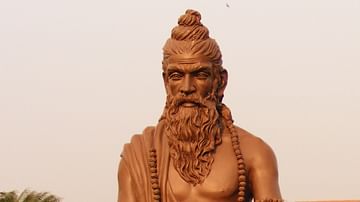Search
Did you mean: Venus?
Search Results

Definition
Sushruta
Sushruta (c. 7th or 6th century BCE) was a physician in ancient India known today as the “Father of Indian Medicine” and “Father of Plastic Surgery” for inventing and developing surgical procedures. His work on the subject, the Sushruta Samhita...

Definition
Democritus
Democritus (l. c. 460 - c. 370 BCE) was a Greek philosopher and younger contemporary of Socrates, born in Abdera (though other sources cite Miletus) who, with his teacher Leucippus (l. 5th century BCE), was the first to propose an atomic...

Definition
Filippo Brunelleschi
Filippo Brunelleschi (1377-1446 CE) was an Italian Renaissance architect, goldsmith, and sculptor, who is most famous for his work on the cathedral of Florence and its impressive soaring brick dome, completed in 1436 CE. Considered one of...

Definition
Stephenson's Rocket
The Rocket was a pioneering steam-powered locomotive invented in 1829 by the British engineer Robert Stephenson (1803-1859). For a cash prize, extensive competition trials were held to find the best locomotive in the Rainhill Trials. Rocket...

Definition
Oliver Cromwell
Oliver Cromwell (1599-1658) was an accomplished cavalry commander, then head of Parliament's New Model Army, and finally Lord Protector of England, Scotland, and Ireland. The latter title was awarded to Cromwell for life after the bloody...

Definition
Edgar Allan Poe
Edgar Allan Poe (1809-1849) was an American author and poet, often credited as the father of the short story, a pioneer of science fiction, the inventor of the detective story, and the master of the horror genre. He is best known for his...

Definition
Vincent van Gogh
Vincent van Gogh (1853-1890) was a Dutch post-impressionist artist whose paintings are amongst the most popular and recognizable in history. His dramatic brushwork, exuberant palette, and mastery at capturing moments in time and light revolutionised...

Definition
Daedalus
Daedalus is a figure from Greek mythology famous for his sculptures, clever inventions, and as the architect of the Minotaur's labyrinth on Crete. Daedalus is the father of Icarus who flew too close to the Sun on his artificial wings and...

Definition
Frédéric Chopin
Frédéric Chopin (1810-1849) was a Polish composer and virtuoso noted for his solo piano music. Chopin's work helped make the piano the most popular musical instrument of the 19th century. One of the great composers of Romantic music, Chopin's...

Definition
Sandro Botticelli
Sandro Botticelli (1445-1510 CE), real name Alessandro di Mariano Filipepi, was an Italian artist of the early Renaissance. A prolific painter, especially of altarpieces and works with a religious theme, Botticelli's most famous work today...